Buying vs. Renting When You Relocate: Which One is Right for You?
As a physician, deciding whether to buy or rent a home is a major financial decision that can impact your long-term wealth, career mobility, and lifestyle. Unlike traditional homebuyers, physicians have unique challenges—including student loan debt, residency relocations, and demanding schedules—that make the choice even more complex.
So, which is better? Let’s break down the pros and cons of buying vs. renting, along with key factors to consider before making your move.
🏡 Buying a Home as a Physician
Buying a home is often seen as a long-term investment, providing equity, stability, and financial benefits. However, it also comes with upfront costs and a commitment to staying in one place.
✅ Pros of Buying
✔ Building Equity: Every mortgage payment builds your net worth instead of paying someone else’s mortgage.
✔ Tax Benefits: Mortgage interest and property taxes can be deducted, lowering taxable income.
✔ Stable Monthly Payments: With a fixed-rate mortgage, your housing costs remain predictable, unlike rising rents.
✔ Customization & Ownership: Freedom to renovate, personalize, and improve the property as you wish.
✔ Physician Loan Programs: Special mortgage programs allow low or no down payments, no PMI (private mortgage insurance), and flexible debt-to-income ratios—helping doctors qualify despite student debt.
❌ Cons of Buying
❌ Upfront Costs: Down payment, closing costs, and maintenance expenses add up.
❌ Less Flexibility: Relocating for a job or fellowship is harder when you own a home.
❌ Market Risk: Home values fluctuate, meaning your property could lose value in a downturn.
❌ Time & Responsibility: Repairs, maintenance, and homeownership responsibilities require extra time and money.
🏠 Renting as a Physician
Renting offers flexibility and lower short-term costs, making it a good option for residents, fellows, or physicians uncertain about their long-term plans.
✅ Pros of Renting
✔ Flexibility to Move: Easier to relocate for fellowships, career changes, or lifestyle preferences.
✔ Lower Upfront Costs: No down payment or closing costs—just first month’s rent and a security deposit.
✔ Less Financial Risk: No worries about market downturns, home maintenance, or property taxes.
✔ Convenience: Landlords handle repairs and upkeep, making renting hassle-free.
❌ Cons of Renting
❌ No Equity Building: Monthly rent payments don’t contribute to long-term wealth.
❌ Rent Increases: Landlords can raise rent yearly, making costs unpredictable.
❌ Limited Customization: No renovations or major changes allowed.
❌ No Tax Benefits: Unlike homeownership, you can’t deduct rent payments from taxes.
🔑 Key Factors to Consider Before Deciding
📍 1. How Long Will You Stay in One Location?
• If you plan to stay for 3-5+ years, buying may be worth it.
• If you expect to move within 1-3 years, renting is the smarter choice.
💰 2. Do You Have Enough Savings for Upfront Costs?
• Buying requires a down payment, closing costs, and emergency savings for repairs.
• Renting requires less upfront money, making it easier to save for future homeownership.
🏥 3. Are You in Residency, Fellowship, or an Attending Position?
• Residents & Fellows: Likely better to rent due to frequent relocations.
• Attending Physicians: More stable income & career—buying makes more sense.
📊 4. What’s Your Debt-to-Income Ratio?
• If student loans make up a large portion of your debt, qualifying for a mortgage could be harder without a physician loan program.
• Renting allows financial flexibility while you pay down loans.
| Factor | Buying 🏡 | Renting 🏠 |
| Upfront Costs | Higher (down payment, closing costs) | Lower (security deposit, first month’s rent) |
| Flexibility | Lower – Harder to relocate | Higher – Easy to move |
| Long-Term Wealth | Builds equity & financial security | No wealth-building potential |
| Market Risk | Property value can fluctuate | No risk – landlord takes on market changes |
| Repairs & Maintenance | Your responsibility | Landlord covers it |
| Job Relocation Impact | More difficult to move for a new job | Easier to transition |
Should Physicians Buy a Home?
🏡 Buying makes sense if:
✔ You’re in an attending position with job stability.
✔ You plan to stay in one place for at least 3-5 years.
✔ You qualify for a physician mortgage loan with low/no down payment.
✔ You’re financially ready for homeownership costs & responsibilities.
🏠 When Should Physicians Rent a Home?
🛠️ Renting makes sense if:
✔ You’re in residency or fellowship and expect to move soon.
✔ You’re still deciding on your long-term career location.
✔ You want financial flexibility while paying down student loans.
✔ You’re saving up for a down payment and want to buy later.
🏡 MD Match Helps Physicians Find the Right Housing Solution
Still unsure whether to buy or rent? MD Match connects physicians with expert realtors, lenders, and financial advisors who specialize in physician relocations.
🔹 Get personalized advice based on your career and financial goals.
🔹 Find a trusted realtor who understands physician needs.
🔹 Get matched with lenders offering physician-specific mortgage programs.
📩 Ready to make the right move? Contact MD Match today!
🚀 Want more home-buying & financial tips?
Join our MD Match Physician Network for exclusive relocation insights, job postings, and expert guidance!

